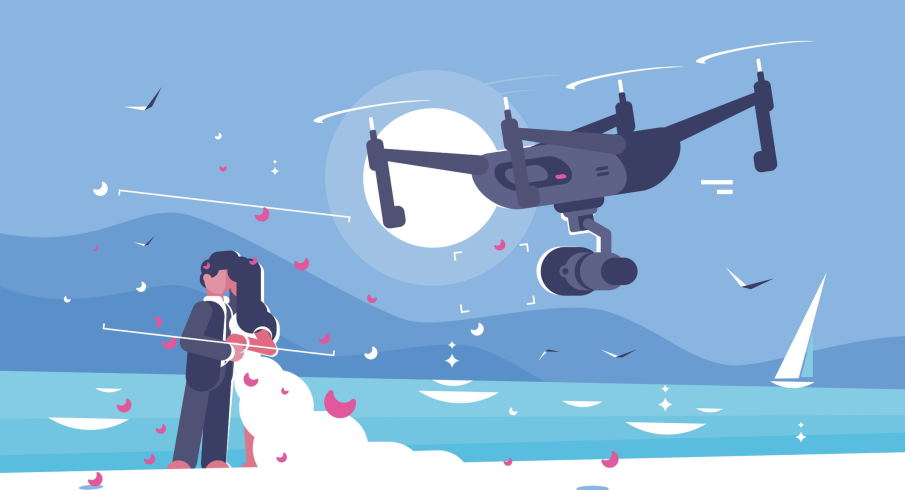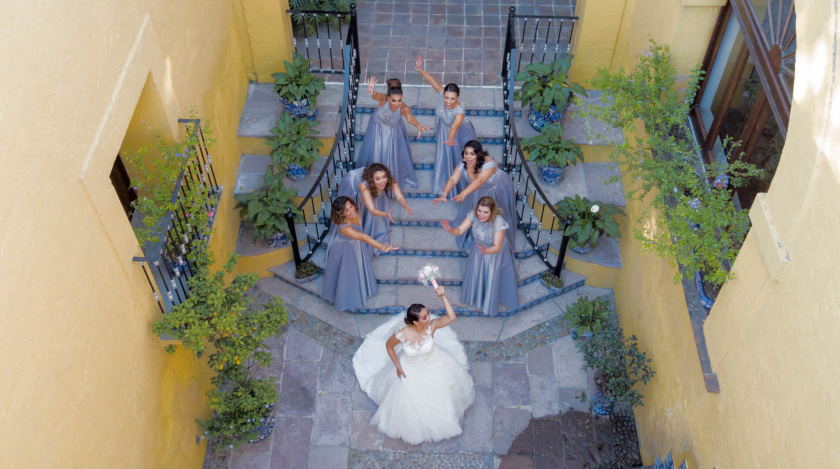Drone Videography Is the Wedding Trend: How to Capture Beautiful Footage of Your Big Day
When it comes to wedding photography, videography is becoming a popular trend. And drones are taking center stage in delivering stunning aerial footage of the big day. While drones can be used for other purposes such as security or surveying, they’re quickly gaining fans among wedding photographers and videographers for their ability to capture landscapes and scenes from unique angles. If you’re considering using a drone to capture your wedding video, here are some tips to help you get started.
Drone videography can add an extra level of excitement and impressiveness to your wedding video. If you’re considering using one for your big day, check out these tips on how to get started!
Drone wedding videography basics to know
It’s official: drones are no longer just for tech-savvy early adopters. These days, anyone with a drone and a camera can get in on the action, including wedding videographers.
Hiring a drone operator to capture aerial footage of the ceremony and reception is becoming an increasingly popular option for couples planning their big day. And it’s not hard to see why. Drone videography can add a whole new dimension to your wedding video, offering stunning bird’s eye views that aren’t possible with traditional ground-based cameras.

If you’re considering hiring a drone videographer for your wedding, here are a few things you need to know.
- There are regulations in place for drone use.
The first thing you need to know is that there are regulations governing the use of drones. In the United States, the Federal Aviation Administration (FAA) requires anyone operating a drone for commercial purposes to obtain a certified pilot’s license.
This may sound like a daunting requirement, but it’s not as difficult as it sounds. Many schools offer training courses specifically for drone pilots, and many videographers already have their pilot’s license from previous work in the film or photography industry.
- You need to get permission from the venue.
Before you can start flying your drone around, you need to get permission from the venue. Most venues will have no problem flying a drone if you follow their guidelines and stay out of the way of guests.
However, it’s always best to check with the venue in advance. Some venues may have restrictions on where drones can and can’t fly or require you to get special insurance.

- Weather conditions can affect drone flights.
Weather conditions can also affect drone flights. High winds, for example, can make it difficult to control a drone, and rain can damage sensitive electronic components.
For these reasons, it’s important to check the forecast and plan your drone flights accordingly. In addition, if there’s a chance of bad weather on the day of the wedding, it’s best to have a backup plan in place.
- Drones can add a unique perspective to your wedding video.
One of the best things about drones is that they offer a unique perspective you can’t get with traditional ground-based cameras. As a result, aerial footage can add a whole new dimension to your wedding video, and it’s sure to impress your guests.
Drone videography is worth considering if you’re looking for a way to take your wedding video to the next level. Make sure you research and follow the guidelines outlined above to ensure everything goes smoothly on your big day.







